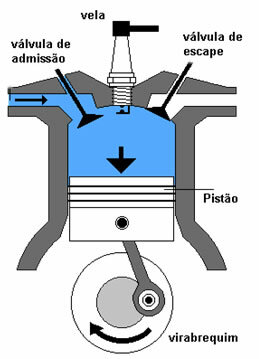Defined as the inability to bear a child, after a year of unprotected sex, that is, without any contraceptive method, the infertility it affects men and women in the same proportion, having its causes in several factors.
The cases of male infertility they occur because of problems in the production of the sperm or when the sperm cannot reach the egg. There are several reasons that can lead the testicle to not produce or produce little sperm. One of these problems may be related to the glands (hypothalamus and hypophysis) responsible for stimulating the production of sperm by the testes. Some factors such as diseases of genetic origin, tumors, malformations, inflammation, degeneration, external or surgical trauma, aneurysms, infarctions, excess of male hormones, diabetes, hypothyroidism and obesity can cause the glands to shrink or stop stimulating the production of male gametes, causing infertility. Some problems in the bodies that make up the male reproductive device, such as the epididymis and vas deferens, may also be responsible for male infertility.
Other factors that can trigger the male infertility they are:
* Men with the Klinefelter Syndrome;
* cryptorchidism;
* Varicocele;
* Y chromosome defects;
* orchitis viral like mumps;
* Orchiepididymitis (consequence of STDs);
* Intoxication or use of toxic substances;
* Ionizing radiations;
* Hyperthermia;
* Presence of anti-sperm antibodies;
* Diseases such as sickle cell anemia, liver cirrhosis and kidney failure.
As for women, problems with the ovulation are the most common causes of female infertility. Age is an important factor, as the ovary's ability to produce an egg decreases with age, and at menopause a woman will no longer produce an egg, and therefore cannot become pregnant. Other factors that can cause the female infertility they are:
* Overweight;
* Eating disorders such as anorexia and bulimia;
* Depression;
* Intense physical activities;
* Sedentary lifestyle;
* Smoking;
* Alcoholism;
* Exposure to toxic agents such as pesticides;
* Pelvic inflammatory disease;
* endometriosis;
* Hormonal disorders;
* polycystic ovary;
* Ovarian failure;
* Fibroids in the uterus;
* Increased prolactin in the blood;
* Scars in the uterus due to curettage;
* Uterine contractions that prevent the sperm from fertilizing the egg;
* Dysfunctions in thyroid and in the adrenal glands.
Couples who want to have children and have problems with infertility they should seek medical help so that the real reason for infertility can be verified and treatment can be started.
The treatment suggested by the doctor will depend on the causes of the infertility. In most cases, these causes can be resolved with medication or surgery. “Infertility, male or female, can be reversed in many cases. With proper treatment, the chances of pregnancy reach 30%, the same rate for a couple who do not presents problems", explains the medical specialist in human reproduction, Joji Ueno, director of General Clinic
by Paula Louredo
Graduated in Biology
Source: Brazil School - https://brasilescola.uol.com.br/biologia/infertilidade.htm


